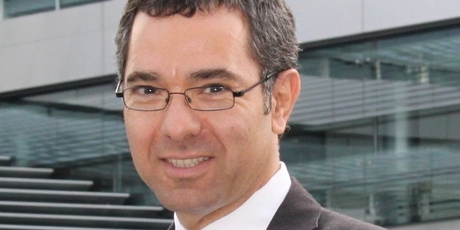Steering wheels? They'll be gone by 2035, study says
http://www.auto123.com/en/news/steer...s?artid=169322
Quote:
In a recent survey of more than 200 researchers in the field of autonomous vehicles, the majority of respondents believed rearview mirrors, horns, and emergency brakes will be removed from cars by 2030, while steering wheels and gas/brake pedals will follow by 2035.
Over 75% of respondents also indicated that all 50 U.S. states would pass legislation permitting use of driverless vehicles within this time period.
"We've seen incredible growth in the driverless vehicle industry over the past few years, both in technological advancement and manufacturer acceptance, that has dramatically affected the consumer adoption timetable," stated IEEE Fellow Alberto Broggi, professor of computer engineering at the University of Parma in Italy and founder of VisLab. "The scientific community and car manufacturers have been working together to incrementally include autonomous features in modern day cars, with the intention of producing driverless vehicles in the near future. For mass adoption, it's important that we begin trusting this technology."
Advancements in technology will be the most instrumental in the continued development of driverless vehicles, with more than half (56%) of respondents believing that sensor technology is most essential, followed by software (48%), advanced driver assistance systems (47%), and GPS (31%).
Roughly three out of four predict that a complete digital map of the world will exist within the next 15 years.
Back To The Future II may have been way off the mark, but clearly the future is already here.
Source: IEEE
|
_____________________________________________________
2030: No drivers, no traffic jams
http://www.nzherald.co.nz/nz/news/ar...ectid=11294060
Quote:
Hours stuck on our car-clogged city motorways could be just a memory by 2030, says a visiting Stanford University energy expert.
Clean energy entrepreneur Tony Seba has predicted that 16 years from now up to 80 per cent of parking spaces and highways will be redundant, and the concept of car ownership and taxis as we know them will be obsolete.
|

Quote:
By then, not only would all mass market cars be electric, but self-driving and handily hailed using your smartphone.
Mr Seba, who gave a presentation at Auckland's Viaduct Event Centre last night, told the Herald that while his predictions were controversial, he was convinced that what sounded like the kind of science fiction of movie Minority Report would soon become reality.
"Within the next 10 to 15 years, everything is going to change in transportation," he said.
"It's going to be the biggest transformation of transport in a century - since the gasoline engine disrupted horses."
This global transition, an example of industry "disruption", would come as Silicon Valley made oil, nuclear, natural gas, coal, electric utilities - and conventional cars - obsolete, he said.
"It will be over by 2030 - maybe before.
"Oil, natural gas, coal, and uranium will simply become obsolete for the purposes of generating significant amounts of electricity and powering the automobile."
Driving this change would be the innovations in electric and driverless vehicle technology, the internet and big data, and a shift away from fossil-based fuels.
"Nissan last week announced that by 2018, they could have a market-ready autonomous car, and the only thing holding it back is regulation."
Huge highways would no longer be needed as populations began sharing vehicles that were constantly in motion.
"Today, cars are parked 96 per cent of the time, more or less, yet we pay $14,000 for these vehicles and use them maybe only an hour or two every day," he said.
"So driverless cars are going to flip that equation because they are going to be running all the time."
Instead of walking to their garage or driveway, he said, commuters would simply use their phones to call self-driving cars that would pick them up anywhere, at any time.
"Indications are that it's going to cost 90 per cent less than the gasoline car, so it's going to be more economical and more flexible.
"If you put all of the factors together, you realise gasoline is largely not going to be needed for cars - it's not that we are going to run out, we are not going to use it anymore."
Mr Seba believed regulation would play a large part in weaning us off fossil-based vehicle fuels.
"Energy companies do have much power, and they are pushing back, so regulation will be very important. But look, it's a tech disruption, and like any tech disruption, it's going to happen."
Dr Nirmal Nair, a senior lecturer at the University of Auckland, doubted a clean energy transport utopia could be achieved here within two decades.
While Dr Nair believed the energy business model would indeed change, and this would be disruptive for transport, he considered Mr Seba's prediction as "more aspirational".
"From an Auckland perspective, I don't agree with any of those statements around the point of it happening by 2030."
Simon Terry, executive director of the Sustainability Council, however, believed electric vehicles could dominate the new car market by 2030 if petrol prices increased enough through some combination of oil price rises and higher carbon charges on emissions.
"Electric vehicles cost more upfront but that cost will continue to fall over time, so it is just a question of when the savings from using electricity instead of petrol will justify the switch."
Vision of the future
* In 2030, according to Tony Seba:
* All new mass-market vehicles will be electric.
* All of these vehicles will be autonomous (self-driving).
* Up to 80% of parking spaces and highways will be redundant.
* All new energy will be provided by solar and wind.
On the web: Watch a lecture on the future of transportation by Stanford University lecturer Tony Seba at http://goo.gl/kNMUfA
- NZ Herald
|

|